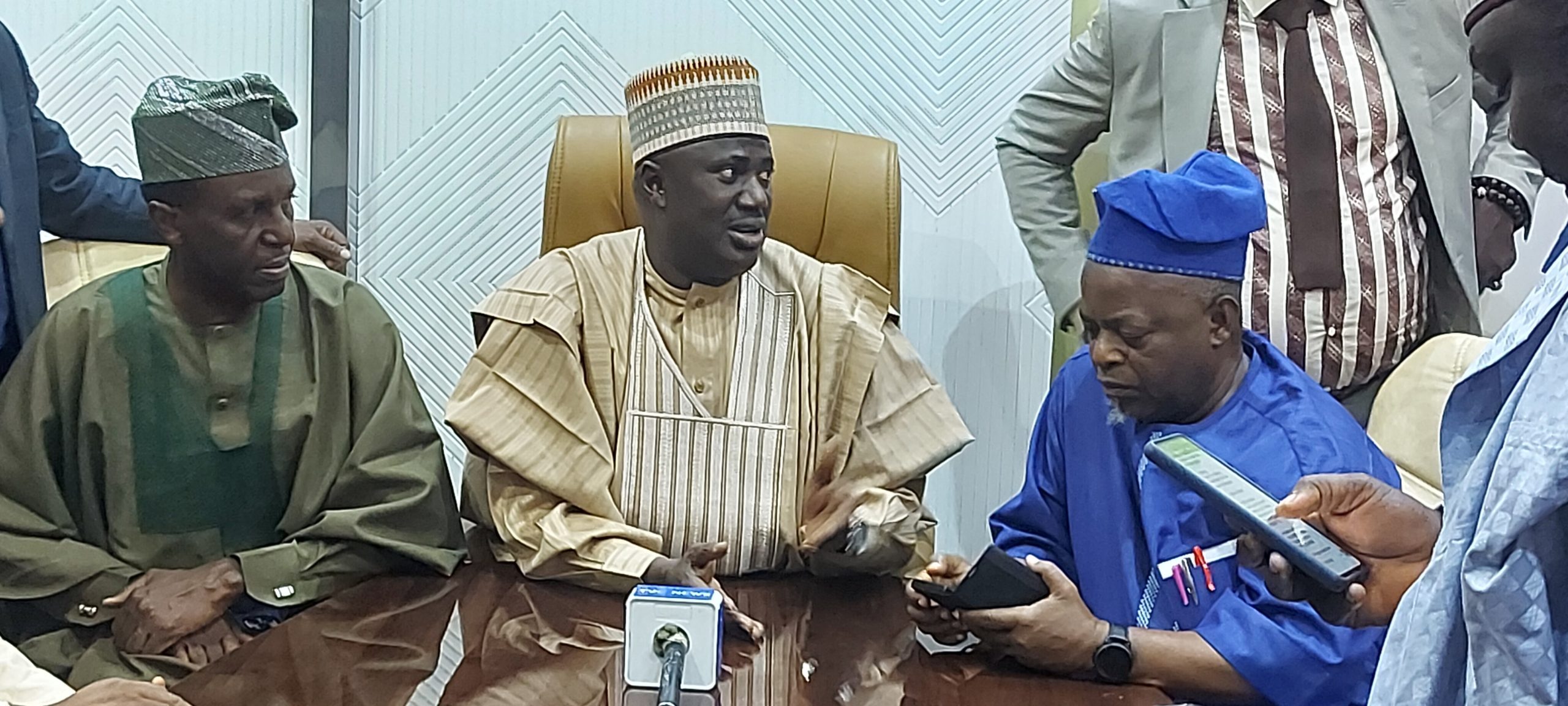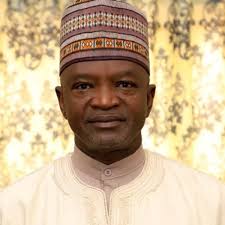***Says Tinubu is in firm grip of solutions to Nigeri’s challenges
The Minister of State for Agriculture and food Security Senator Aliyu Sabi Abdullahi, has advised project 774 members to sensitized Nigerians on need to go back to the farm since land is God’s natural gift that remains an asset for employnent and productive venture
He spoke in Abuja on Thursday when the members of Project 774 for Tinubu/Shettima in the 2023 general election, which he coordinated nationally, paid him a courtesy call in his office.
Abdullahi who was senate Deputy Chief Whip and Chairman Board of Trustees, Project 774 for Tinubu/Shettima said,

“I want all members of this powerful network to take the message home that we just have to go back to the land. That is our God given natural asset.
“We are preparing very hard to make sure that the right things are done to stimulate agricultural production and increase productivity.
“Because it is one thing to go to farm, it is another thing to be productive. So we want production and productivity and we are working very hard on this.”
He reiterated the position that the President understands the problem of the country adding that it is why his 8 point agenda takes food security as topmost priority.
According to him the President’s agenda also touches on economic growth, job creation for which the Agricultural and food security sector play major roles.
“He talk about poverty eradication and also inclusivity, creating the enabling environment for every Nigerian to be able to participate in particular youths and women. I think we have our job cut out for us.”
“The priorities if the President are very clear, straight forward and we have already started digging down to get down to work. I want to appeal to Nigerians that the Duty of providing food is a collective responsibility.
“In this administration the emphasis on food security is a very powerful message so that with the political will, we have no doubt along with my colleague Abubakar Kiyari, we will work very hard to ensure we deliver on this mandate.
We will continue to engage and guide ourselves.
“Very soon we will be unveiling our road map in line with the Renewed Hope Agenda of the 8 points priorities of the President.
“When we chose 774 we knew all the action for our development are at the local government councils that is why we recognize the local level as the base.”
On the project 774 he said, ” “We promised to mobilise votes in 774 local governments of Nigeria for APC, presidential candidates, Asiwaju Bola Ahmed Tinubu and Kashim Shettima.
“We are people you have led, when we started the journey you told us to learn the tricks of perseverance, patience, endurance and that there will be success and here we are.
“With your good leadership we were able to navigate the difficult terrain. First was the 25th February election for which we saw the emergence of our principal and his running mate
Today we came out tops winning the Presidency, many Governotorial election and highest number of parliamentarians.
“I think our effort was genuine and all of us showed commitment at various levels and I remember clearly that we promised Nigerians and ourselves that when victory is secured we intend to move the project to point 0.
“Which means we are going to keep our activities active in such a manner that those we went out to mobilize to give us this votes will be kept abreast of happenings, where they need to participate, they will be made to participate, information that needs to get to them will get to them through our network we will do that and we have agreed and whole heartedly that we are going to do that.
“I have told director of organization to re-validate all our data base in terms of the State level, local government level and after doing that we can see what we can do to mobilize ourselves back, to recalibrate so that over the next four years we can support the various authorities that have been put in place to help our President Bola Ahmed Tinubu to deliver on his renewed hope agenda. I want to assure you that the commitment is there.
“I want to join all of you in thanking President Bola Ahmad Tinubu for finding me worthy and making me a minister in his cabinet. We know the expectations are high and we intend to work very hard to justify the confidence reposed in us.
Convener Project 774 TINUBU SHETTIMA/ National Director of the Organization. Hon (Dr) Ahmed Adamu, FIICEP said they are greatful to Tinubu for appointing their leader as minister.
Other speakers at the visit included, Hon Arc Muhammad Muktar, member representing Gwiwa, Runi, Yankwashi Federal constituency, Jigawa state. Jigawa state Task Team leader
Hon Dr Yahya Abubakar FCT Task Team leader, Hon Engr Yunusa Abubakar Ahmed Director Interfaith.
Hon James Dalu, Executive Secretary, People living with Disability who was Director of Persons With Disability(PWD) was also at the event




